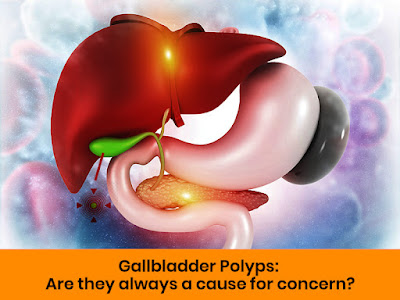Gallbladder
polyps are abnormal tissue growths that spread from the mucous lining of the
organ. Though they are usually benign and harmless, they can be an indication
of other gallbladder disorders. A lot of people have the notion that these
polyps are cancerous growths and must be eliminated. In this regard, the best gallbladder cancer surgeon in Kolkata has
discussed the nature of gallbladder polyps to debunk the prevailing
misconceptions.
Are gallbladder polyps always malignant?
No, these growths are not always a sign of gallbladder cancer. Research suggests that only five per cent of these growths can potentially turn into cancer. About sixty to ninety per cent of them are deposits of cholesterol that stick to the gallbladder wall. The remaining five to ten per cent are inflammatory polyps.
Types of gallbladder polyps
Below, a renowned onco surgeon in Kolkata has explained the different types of gallbladder polyps:
● Pseudopolyps: Also known as cholesterol polyps, they are a result of a non-cancerous condition termed cholesterolosis, where excess cholesterol lipids accumulate and cling to the gallbladder wall.
● Inflammatory polyps: These are a form of scar tissue linked to the persistent inflammation of the gallbladder wall, known as cholecystitis.
● Adenomas: They are non-cancerous tumours comprising cells that are similar to the lining of the biliary tract, which connects the gallbladder to other organs. There is a 0.5% risk of these tumours developing into cancer.
● Malignant polyps: These polyps are mostly adenocarcinoma, which is the most prevalent form of cancer affecting internal organs.
Distinguishing between benign and malignant polyps
Benign polyps usually grow in multiples, while the cancerous ones tend to grow as one large single cluster. They are usually more than two centimetres in diameter. Also, harmless polyps tend to replicate more quickly than the cancerous ones. Doctors usually recommend eliminating gallbladder polyps that are more than one centimetre in diameter. They also suggest the same if the polyps cause symptoms such as pain and fever.




0 Comments